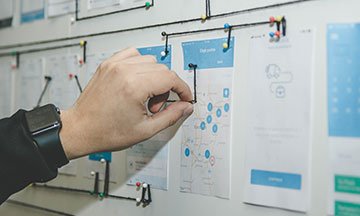Oil and Gas Predictive Maintenance and Reliability Centered Maintenance of Plant
| Date | Venue | Duration | Fees | |
|---|---|---|---|---|
| 01 May - 03 May, 2024 | Kampala | 3 Days | $4100 | Register |
| 06 May - 10 May, 2024 | Dubai | 5 Days | $4750 | Register |
| 10 Jun - 14 Jun, 2024 | Dubai | 5 Days | $4750 | Register |
| 15 Jul - 19 Jul, 2024 | Kampala | 5 Days | $4950 | Register |
| 29 Jul - 02 Aug, 2024 | Dubai | 5 Days | $4750 | Register |
| 19 Aug - 23 Aug, 2024 | Dubai | 5 Days | $4750 | Register |
| 26 Aug - 30 Aug, 2024 | Kampala | 5 Days | $4950 | Register |
| 02 Sep - 06 Sep, 2024 | Dubai | 5 Days | $4750 | Register |
| 14 Oct - 18 Oct, 2024 | Dubai | 5 Days | $4750 | Register |
| 16 Oct - 18 Oct, 2024 | Nairobi | 3 Days | $4100 | Register |
| 18 Nov - 29 Nov, 2024 | New York | 10 Days | $9850 | Register |
| 25 Nov - 29 Nov, 2024 | Dubai | 5 Days | $4750 | Register |
| 09 Dec - 13 Dec, 2024 | Dubai | 5 Days | $4750 | Register |
Course Overview
A major challenge facing maintenance people today is not only to learn what maintenance techniques exist but to determine which ones are worthwhile to the organizations. If we make the right choices, it’s possible to improve asset performance and at the same time reduce the cost of maintenance. If we make the wrong choices, new problems are created while existing problems only get worse.
Maintenance has too often been the focus of cost-cutting without regard to the impact on availability. Money saved on the maintenance budget appears directly on the bottom line. The money lost in production through equipment downtime does not appear, however it may be many times greater than the direct maintenance cost saving.
Reliability is defined as the probability that an item will perform a required function without failure under stated conditions for a specific period. A statement of reliability has four key components: probability, function, stated conditions & specific period.
Reliability analysis takes the long-term view and develops cost-effective ways to reduce life cycle costs. The life cycle cost includes the cost to purchase, operate, and maintain during its useful lifetime.
What is predictive maintenance in oil and gas industry?
Reliability and predictive maintenance strategies use the analytical process to determine appropriate failure management strategies to ensure safe and cost-effective operations of a physical asset in a specific operating environment.
What is reliability centered maintenance?
Reliability-Centred Maintenance (RCM) can be defined as an approach that employs reactive, preventive, predictive, and proactive maintenance practices and strategies in an integrated manner to increase the probability that a machine or asset will function in the required manner over its design life cycle with minimum maintenance. The goal of RCM is to preserve equipment function with the required reliability and availability at the lowest cost. RCM requires that maintenance decisions be based on maintenance requirements supported by sound technical and economic justification.
The results are measurable. The savings are real. The case studies speak for themselves. There’s a clear pathway to improving asset reliability: maintenance excellence. Organizations worldwide are systematically reaping the benefits of transforming their maintenance programs into best practices.
In this course from Zoe Talent Solutions, participants will learn the practices they need to master to reduce equipment downtime. And when they do so, they will also reduce maintenance costs and improve safety records. The framework introduced is founded on some of our industry’s best research and will work. Practical advice and guidance will be offered particularly as they are applied in the industry.
The course objective is to demonstrate how predictive maintenance and reliability engineering techniques and methods improve programs, processes, products, and services. And to emphasize the most effective strategies, policies, tactics and practices that are needed to ensure the reliability, integrity and durability of the plant assets through their life cycle.
This course aims to provide participants with sound knowledge about the predictive maintenance strategy and tools of reliability-centred maintenance (RCM). This course will enable operation and maintenance personnel to manage maintenance activities by up-to-date modern maintenance policies and available facility equipment and resources. In this short course, participants will learn and comprehend all required details for implementing effective reliability maintenance and superior strategies and apply them to several cases from oil & gas plants. Practical advice and guidance will be offered particularly as they are applied in the industry.
Course Objectives
The main objective of this training program is to empower professionals with details to understand the Predictive maintenance strategy and RCM topics. Upon the successful completion of this course, the participant will be able to:
- Prepare a maintenance program using the guidelines & procedures and be able to discuss the important key points in developing the maintenance program
- Recognize the need for modification control and carry-out maintenance implementation strategies
- Apply and gain an in-depth knowledge of Total Plant Reliability Centered Maintenance (RCM) including its history, terminology, objectives and critical success factors
- Recognize reliability and availability and determine the use of reliability information for maintenance
- Enumerate the various maintenance tasks and emphasize the analytical decision logic
- Demonstrate reliability engineering audits and assessments and be able to identify the other tools used in RCM such as Failure Analysis and HAZOP studies
- List the support elements of RCM and use a system approach in work planning, scheduling and work control
- Cost-effectively utilizes predictive maintenance and condition-based strategy
Training Methodology
This collaborative course on Oil and Gas Predictive Maintenance and Reliability Centered Maintenance of Plant will comprise the following training methods:
- Lectures
- Seminars & Presentations
- Group Discussions
- Assignments
- Case Studies & Functional Exercises
Like all our acclaimed courses, this program also follows the ‘Do-Review-Learn-Apply’ model.
Organisational Benefits
By professionals undertaking this course, their respective organisations will derive the following benefits:
- Adapting maintenance program to the world-class level of maintenance
- Utilizing best practices in maintenance management will improve system availability and reliability which will directly impact increasing productivity and profitability
- Improved efficiency by getting the right work done and deferred capital investment for more capacity
Personal Benefits
Professionals undertaking this training course will derive the following benefits:
- In-depth understanding and knowledge of predictive maintenance strategy and tools
- Apply and gain knowledge of Effective Reliability Maintenance including its history, terminology, objectives and critical success factors
- Analyse the failure process and become familiar with FMEA, FMECA, failure consequences as well as the hidden & evident failures
- Enumerate the various maintenance tasks and emphasize the analytical decision logic for RCM
- Generate value from using best practices to optimize the maintenance program
- Prepare a maintenance program using the guidelines & procedures and be able to discuss the important key points in developing the maintenance program
Who Should Attend?
- Maintenance engineers and supervisors
- Maintenance planners
- Reliability engineers
- Maintenance Managers
- Condition monitoring specialists
Course Outline
The course covers the following areas important to understanding Predictive Maintenance and Reliability Centred Maintenance:
Module 1: Reliability Engineering and Maintenance Introduction
- The role of maintenance in organization productivity
- Maintenance definition and Cycle
- Maintenance vision and mission
- Maintenance goals and objectives
- Evolution of Maintenance
- Maintenance policies and strategies
- Maintenance and Profitability
- Maintenance organization “Classification of Roles in Maintenance”
- Elements of asset management
Module 2: Reliability Centered Maintenance
- Background, history & basics
- Definitions & concepts
- Operational reliability
- Benefit of RCM
- RCM Objectives
- RCM features
Module 3: Failure Analysis
- Failure definition
- Equipment failure rate and patterns
- Failure management strategy
- Root causes of machinery failure
- Failure patterns
Module 4: Planned Maintenance
- Introduction
- Age-to-Failure relationship
- Planned maintenance task Applicability and effectiveness
- Determine planned maintenance task interval
- Preventing Failure Concept
Module 5: Predictive (Condition Based) Maintenance
- Condition-based maintenance strategy as a reliability driver
- Predictive maintenance (PdM) focuses
- Plant equipment criticality classification
- CBM process
- PdM techniques
- Potential Failure (P-F) diagram
- The P-F interval
- Condition monitoring task applicability and effectiveness
- Determine condition maintenance task intervals
- Establishing CBM task action limits
Module 6: Operating Context and Function
- Operating Context preparation
- Drafting an Operating Context
- Importance of writing Function
- Design capability Versus required function
- Compose and document functions
- Functional Failures
- Failure modes
- Failure effect
Module 7: Reliability Centred Maintenance Implementation
- RCM phases
- Seven questions addressed by RCM
- Redundant, standby, and backup functions
- Components classifications
- Preventive and corrective maintenance integration
- Tools & sequential elements
- RCM steps
- RCM Process Flow Diagram
- Set up RCM Project Team
- Select System Boundary
- Reliability Centered Maintenance Criticality Matrix
- RCM implementation
- Defining system
- Determine System Functions and Functional Failure
- Performing Failure Modes, Effects and Criticality Analysis (FMECA)
- Identify Failure Causes
- Perform Non-Critical Evaluation
- Define Planned Maintenance Tasks
Module 8: Maintenance and Reliability Essential Elements
- Planning and Scheduling
- Preventive Maintenance
- Defect Elimination and Root Cause Analysis
- Reliability leadership
Module 9: Sustaining the Reliability Program
- Sustaining the Analysis
- Trend Analysis
- Maintenance requirements document review
- Task Packaging reviews
- Age exploration tasks
- Failures
- People & Technology
Module 10: Practical RCM Case Study











